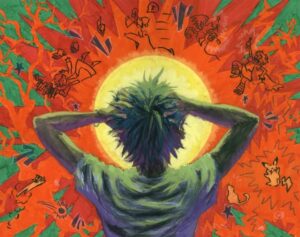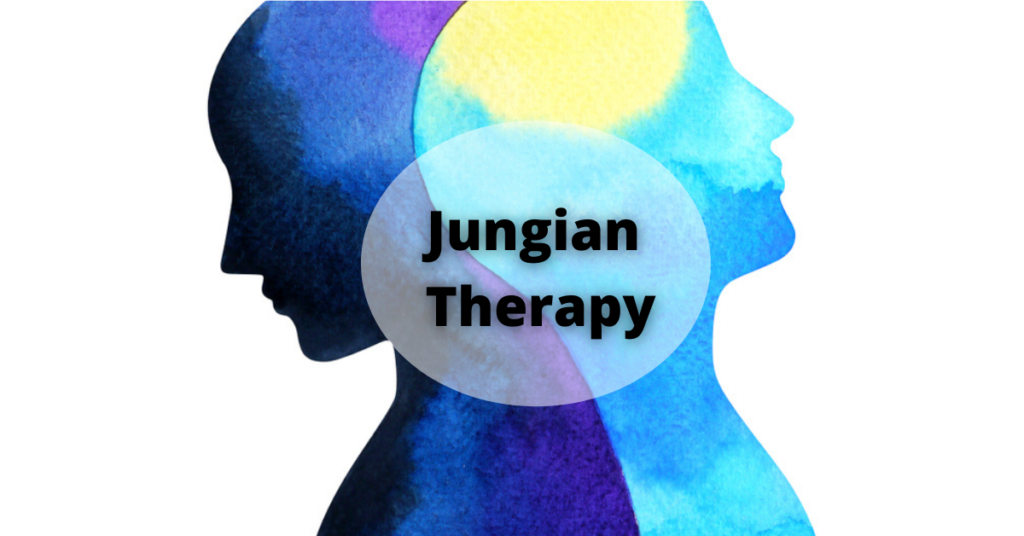Jungian therapy is a type of psychotherapy that was developed by Carl Jung. The goal is to help the patient understand their unconscious and its influence on their conscious behavior, as well as to make changes in order to live a happier life. This blog post will introduce you to this form of therapy, including what it entails and how it can help you.
Contents
What Is Jungian Therapy?
 Jungian therapy is a form of psychotherapy that is based on the theories of Swiss psychiatrist Carl Jung. Jung’s work focused on the unconscious mind, and he believed that our innermost desires and motivations are expressed through our dreams, fantasies, and symbols. Jungian therapists use this information to help their clients understand their own behavior and motivations, as well as to resolve emotional conflicts. This therapy can help to explore the unconscious mind and its influence on a person’s life.
Jungian therapy is a form of psychotherapy that is based on the theories of Swiss psychiatrist Carl Jung. Jung’s work focused on the unconscious mind, and he believed that our innermost desires and motivations are expressed through our dreams, fantasies, and symbols. Jungian therapists use this information to help their clients understand their own behavior and motivations, as well as to resolve emotional conflicts. This therapy can help to explore the unconscious mind and its influence on a person’s life.
Most Jungian therapists are either psychiatrists or clinical psychologists who have undergone extensive post-graduate training specifically in their approach, although some practitioners may be social workers, pastoral counselors, family counselors, nurses, or physicians trained in other areas of medicine
Working of Jungian Therapy
The working of Jungian therapy inspires by the idea that people behavior: the ego, the personal unconscious, and the collective unconscious. The ego is our conscious mind and includes our thoughts, feelings, memories, and perceptions. The personal unconscious contains anything that was once conscious but has been forgotten or repressed. The collective unconscious consists of universal symbols and images that are shared by all humans.
Jungian therapists use a variety of techniques to help their clients access these deeper levels of their psyche. This may include :
Dream Analysis
 In their practice, Jungian therapists encourage clients to keep a dream journal and analyze the symbols that appear in their dreams. This is often done by drawing or painting these images as a way of understanding them more fully. Many times, this process will lead people to insights they may not have been able to access through conscious thought alone.
In their practice, Jungian therapists encourage clients to keep a dream journal and analyze the symbols that appear in their dreams. This is often done by drawing or painting these images as a way of understanding them more fully. Many times, this process will lead people to insights they may not have been able to access through conscious thought alone.
Active Imagination
 Another approach used in Jungian therapy involves encouraging clients to visualize scenes from their past experiences and explore what happens next instead of stopping at the original ending point (as we all tend to do). For instance, if someone has unresolved feelings about an experience with his father, he might be asked to imagine himself back into that situation but take it further than before—perhaps even imagining how it would have been different if he had stood up for himself.
Another approach used in Jungian therapy involves encouraging clients to visualize scenes from their past experiences and explore what happens next instead of stopping at the original ending point (as we all tend to do). For instance, if someone has unresolved feelings about an experience with his father, he might be asked to imagine himself back into that situation but take it further than before—perhaps even imagining how it would have been different if he had stood up for himself.
Exploration of Archetypes
Jungian therapists also encourage their clients to explore the universal symbols that appear in dreams and fantasies. These may include such images as a wise old man, a witch or sorceress, a tower under siege, a river of blood, etc., each with its own particular meaning within Jung’s framework. Sand play therapy is another technique used by some practitioners who use trays filled with sand and small figurines to help individuals express themselves through symbolic imagery. They will ask questions like: What does this scene look like? How do you feel about what has just happened? Who are these people in your dream?
When To Use Jungian Therapy?

Jungian therapy is not for everyone. This therapy is usually in these conditions:
Anxiety
This therapy can be helpful in understanding the root of anxiety and working through any repressed emotions that may be contributing to it.
Depression
Furthermore, Jungian therapy can help people explore the deeper meaning behind their depression and how it may be related to past experiences or unresolved conflicts.
Relationship Issues
Jungian therapy can be beneficial for couples who are struggling with issues such as communication, trust, and intimacy. It can also help individuals understand why they choose certain partners and what unconscious motives may be at play.
Personality Disorders
Furthermore, people with personality disorders often have underlying psychological problems that Jungian therapy can address. This type of therapy can treat addictions and eating disorders.
Substance Abuse
Jungian therapy can be effective for helping people deal with addictions and substance abuse. To be successful, however, you can use this in conjunction with other forms of treatment such as 12-step programs or medication.
Trauma
Jungian therapy can be helpful in understanding and resolving the effects of trauma. It provides a framework for exploring the meaning behind these experiences and how they may be affecting our lives currently.
Expectations of Jungian Therapy

There are a lot of misconceptions about Jungian therapy. Some people may expect to do a lot of “soul searching” or to delve deep into their personal lives, which is not always the case. Furthermore, the focus of this type of therapy varies from person to person and depends on what issues they face. In some cases, it may be more important for the therapist to simply listen without making any judgments.
There are a lot of expectations of Jungian therapy. Some of them are that the process will be more individual-oriented, with less focus on group work or community involvement. For some people, this may not be what they want from a therapeutic experience and it’s important to make sure all expectations are met before committing to any treatment plan.
Benefits of Jungian Therapy

These are some of the benefits of Jungian therapy:
Gives Perspective
Jungian therapists tend to focus on the present and future instead of dwelling in the past. This can be a helpful approach for people who suffer from their experiences in childhood or previous relationships.
Gives Self-Confidence
When people understand the underlying meaning of their problems, it can give them a sense of control and self-confidence. They no longer feel like they are at the mercy of their emotions or thoughts.
Encourages Creativity
Furthermore, Jungian therapy often encourages creativity in its clients as a way of exploring the unconscious. This can be expressed through artwork, writing, poetry, etc.
Helps Resolve Trauma
However, traumatic experiences often have a lasting impact on your lives and can be difficult to address on your own. Jungian therapy provides a safe space for working through these memories and resolving the associated emotional pain.
Helps With Self-Acceptance
People who are struggling with self-acceptance may benefit greatly from Jungian therapy. It encourages people to understand their thoughts and feelings without judgment so they can live more authentically.
Helps To Overcome Addictions
Jungian therapy can be an effective treatment for addictions because it helps people work through the underlying causes of their destructive behaviors. It also focuses on finding more positive and meaningful ways to fulfill one’s desires and needs.
Side-Effects of Jungian Therapy

These are some of the side-effects of Jungian therapy:
Can Be Expensive
Jungian therapy can be expensive, depending on the therapist’s fees. This may be a deterrent for some people who are unable to afford regular sessions.
Requires Time and Commitment
In order to see results, Jungian therapy requires time and commitment from both the client and the therapist. Some people may not be able to make this kind of long-term commitment or they may feel like they’re not getting anything out of it.
Therapist’s Judgmentalism
A potential downside of Jungian therapy is that therapists can sometimes be judgmental towards everyone. This is particularly true if someone is not following through with their treatment plan or if they are exhibiting signs of resistance.
May Be Slow-Going
Jungian therapy can be slow-going for some people. It requires that clients get in touch with their feelings and emotions without immediately trying to avoid or ignore them. This takes time, patience, and trust on both sides.
Conclusion
Jungian therapy is a type of psychotherapy that was developed by Carl Gustav Jung. This form of therapy focuses on the interaction between conscious and unconscious processes in order to facilitate individuation or self-actualization, meaning it helps people come into their own as an individual with their own set of traits, skills, and talents. Furthermore, there are many different ways in which this therapy is successful. One common goal is achieving balance within oneself so one can live more authentically. The therapist will work with the client to confront any issues that may arise during treatment such as depression or anxiety which could lead to them feeling better about themselves overall.
If you are looking for affordable Online Counseling MantraCare can help: Book a trial therapy session


